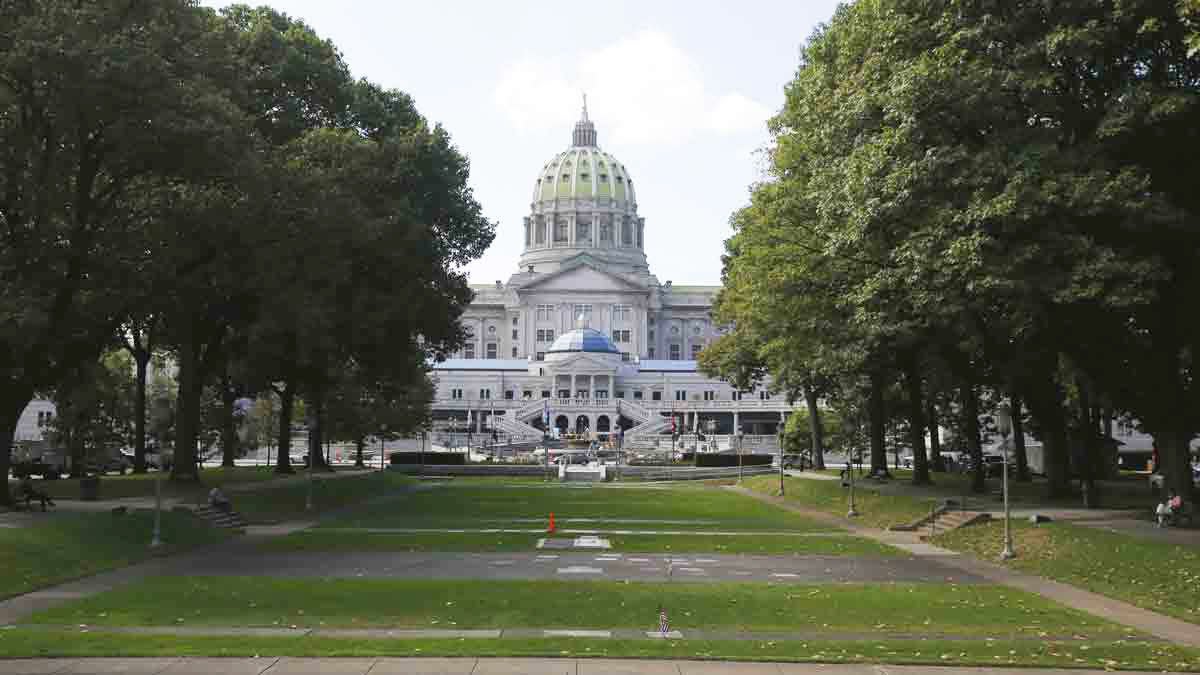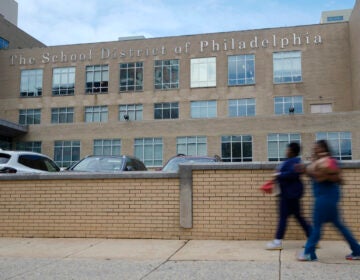Pennsylvania’s budget impasse is blocking state-related universities from receiving funding

Shown is the Pennsylvania Capitol building Wednesday, Oct. 7, 2015, Harrisburg, Pa. (AP Photo/Matt Rourke)
More than a half a billion dollars is being held up for the four “state-related” schools, Penn State, Temple, Lincoln universities and University of Pittsburgh. The University of Pennsylvania School of Veterinary Medicine is also impacted.
Pennsylvania’s Legislature approved a $32 billion spending plan last month — But it hasn’t agreed on a plan yet for how to fund it. They’re reconvening this weekend to address the disparity.
The state constitution requires a balanced budget. Without a balanced budget, appropriations to the state-related universities remain out of reach.
A 1932 state Supreme Court ruling, Schnader vs. Livright, prevents state-related universities, also known as “non-preferreds” from being funded before other government services.
The $600 hundred million cannot be released because the ruling states “expenditures in excess of anticipated revenue” can’t be made for non-preferred appropriations.
After the budget is complete, the university appropriations bills require two-thirds vote of the House and Senate. University funds will remain tied up until then.
Pennsylvania’s 14 state-owned universities, which make up the PA State System of Higher Education, are not subject to this ruling. They include West Chester, Millersville and East Stroudsburg universities.
Cash-flow problems
Ray Betzner, associate vice president of communications at Temple University, said the state money represents 11 percent of the school’s overall budget, and Temple has to find ways to make up those dollars in the short term.
“We’ve gone some years where we’ve been able to borrow money against the belief that we were going to eventually get funding from the state General Assembly,” he said. “Of course, then we have to pay that money back, you have to pay interest on that money, so it does raise our costs.”
Betzner said Temple anticipates $150 million in state money, once the impasse is resolved.
Republicans drafting spending plan
House Speaker Mike Turzai has called the House to session this weekend.
Steve Miskin, spokesman for the Pennsylvania House Republicans, said the GOP tried a bipartisan approach to end the impasse but that failed. So, he said, it’s time for the Republicans to take the lead. “We’re trying to see if we can put together a Republican-only revenue package. That’s what we’re working on. Are we’re going to get there? We’ll find out,” he said.
This has left Democrats in the dark. “We’ve not seen any legislative language and that is unusual,” said Bill Patton, spokesman for the Pennsylvania House Democrats.
“Certainly if he’s expecting us to be voting on that in the next 12 to 24 hours then we would want to see the language that he’s proposing,” said Patton.
Miskin blames the Democrats and Governor Tom Wolf, a Democrat, for the impasse.
“It can’t be forgotten we’re in this situation because 1.) an absentee governor who has not called many meetings, 2.) because the governor deficit spent $1.5 billion last year,” Miskin said. “We have a huge hole to fill. If we didn’t have that deficit to cover, frankly, this would have been resolved in early to mid June, and there wouldn’t be an issue.”
Both sides say they want to end things soon.
“It needs to happen soon,” said Patton the spokesman for the House Democrats. “If it does not get done soon, I fully expect that the universities and the families of thousands of students who attend them will make themselves known, and let us know that we need to get it done.”
Officials say it’s less a question of “if” the schools will be funded but more “when” — depending on how long the impasse drags on.
WHYY is your source for fact-based, in-depth journalism and information. As a nonprofit organization, we rely on financial support from readers like you. Please give today.




